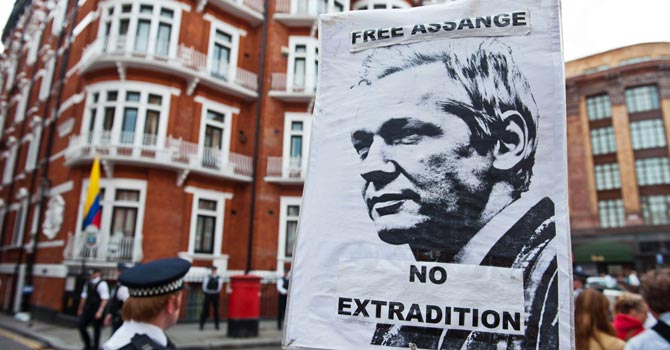Boris Yeltsin was re-elected 20 years ago. To secure victory and ward off a Communist Party comeback, he formed an unholy alliance with the oligarchy, setting the stage for today’s regime in Russia.
On July 3, 1996, Boris Yeltsin (right in photo) was re-elected with 53.8 percent of the vote – 13 points ahead of his opponent, Gennady Zyuganov of the Communist Party. A clear victory was anything but certain, and the ramifications continue to resonate two decades later, with the reign of President Vladimir Putin (left in photo).
Manfred Sapper, editor-in-chief of the German magazine Osteuropa (Eastern Europe), is convinced that the merging of politics and oligarchy that began in 1996 set a “decisive course” for today’s Russia. “This put unbelievable strain on the relationship between an independent media and politics,” Sapper told DW. Media diversity meant that a few oligarchs controlled the few broadcasters. “Today’s situation in Russia was basically foreseeable,” Sapper said. “A single point of view among media coverage across various broadcasters wasn’t intentional – but it was in essence an emerging development by that point.”
Russia underwent drastic change in the mid-1990s. A new constitution with democratic values was adopted in December 1993, and a market-driven economy took over from the planned one. Adherence to human rights was a priority. At the same time, unemployment was high and many Russians couldn’t live on their pay, which had effectively been made worthless by inflation.
The radical political and economic reforms “looked good on paper” but weren’t going to bring about a quick economic recovery, Gerhard Simon of the University of Cologne told DW. Yeltsin lost a lot of support as a result, and Zyuganov’s agenda gained popularity.
‘Less bad choice’
With a mix of skill and cunning, the oligarchs were able to profit enormously from Russia’s transitional period. They increasingly used their financial influence to shape politics. Well aware of what a return to Soviet-style communism might mean for their fortunes and looking to avoid losing everything, they banded together, using ownership of the largest media outlets to campaign for Yeltsin.
Gemma Pörzgen, a board member of Reporters Without Borders, told DW that the overriding fear at the time was of an greater loss in freedom. “A return to communism was to be avoided,” she said. “There was no discussion of press freedom, which still existed under Yeltsin and was first restricted beginning with Putin.” Many journalists saw a very real threat of Communist Party resurgence. “Looking back, there was a role reversal,” Pörzgen said. “Many journalists aligned with Yeltsin against communism, but in exchange they abandoned their journalistic duty to remain neutral.”
Journalists were hoping for the “continuation of Russia’s democratic development,” the University of Cologne’s Simon said, and the incumbent hadn’t meddled with press freedom. “Yeltsin was the less bad choice over Zyuganov – and today, the less bad choice over Putin,” Simon said. Though there was criticism of Yeltsin, he wasn’t “the man who wanted to quash opposition.”
The pact with the oligarchy secured Yeltsin’s victory. The Communists became less relevant. However, Yeltsin wasn’t able to continue the democratic reforms he had begun, and he lost control of his followers. In poor health and trapped by oligarchs, in August 1999 he dropped his preferred candidate to succeed him, Boris Nemtsov, in favor of Vladimir Putin, a disciple of the oligarch Boris Berezovsky.
Putin ignored Yeltsin’s reforms. He removed the oligarchs from power and replaced them with his own friends. Russia has become more authoritarian and less liberal under Putin, but Putin is not solely responsible; the 1996 presidential election played a role. “No one had a master plan for reforming a militarized, multinational empire,” said Sapper, the editor. “It was trial and error. It was in no way clear in the early ’90s, nor in 1996, that it would simply disappear without a trace.”




